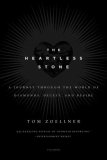Summary | Excerpt | Reviews | Beyond the Book | Readalikes | Genres & Themes | Author Bio

Critics' Opinion:
Readers' Opinion:
First Published:
May 2006, 288 pages
Paperback:
Jun 2007, 304 pages
 Book Reviewed by:
Book Reviewed by:
BookBrowse Review Team
Buy This Book
The latest coup—the ninth since independence—toppled the
government of President Félix Patasse in March 2003. He had made the mistake of
leaving the Presidential Palace for a brief trip to Cameroon. But he had also
forgotten the other key rule of staying in power in Africa: Always keep your
people paid. Soldiers tired of working for free refused to put up much of a
fight against the rebels, so the revolution was relatively bloodless. The
portraits on the walls of the Presidential Palace changed, but little else did.
When I was there, civil servants were going into their fourth month without
wages and the finance minister announced that no disbursements would be coming
anytime soon. The treasury was bankrupt. The French ominously announced the
deployment of a peacekeeping detachment. Soldiers with machine guns and rocket
launchers cruised around Bangui in jeeps. At New Year’s Eve 2004, the Central
African Republic was again teetering on the edge of chaos.
"Listen. Here is something you must understand. Diamonds are an
illusion, diamonds are a dream," said Joseph N’gozo, leaning back in his chair.
He used to be an economic official with the U.S. Embassy, back when there was a
U.S. Embassy. Now he was trying to make money in diamonds and not having a lot
of luck.
We were having dinner at Le Relais des Chasses, a restaurant
near the center of Bangui popular with French expatriates. Its name means "The
Hunting Club." N’gozo wore a colorful African shirt and pinstriped banker’s
pants.
"They have no role in the tradition of our society," he said in
accented English. "We mine for them only because it could make us some money. We
want to work hard, the American dream. And diamonds are the price of admission
to what we think we want."
Joseph owned a small mine in a sandy patch of river bottom,
about eighty kilometers north of Bangui. He paid his ten crewmen the equivalent
of $3 a day—top wages by rural African standards—to shovel the dirt out of the
pit into sifts. The slurry is then washed in river water as the crewmen keep
their eyes out for the glint of magic rock.
"They are not geologists," said Joseph, "but they know where to
go. They can read a riverbank."
His miners hunt for what are called alluvial diamonds—those
stones washed out of dead volcano cores by the rainstorms that pound Central
Africa every summer. These are the easiest possible diamonds to discover and
sell. They lie five meters below the surface at the most, and some can be found
simply by brushing a few inches of sand away from the topsoil. There is no
telling how many lie deeper—undiscovered and probably destined to remain that
way—because heavy equipment, geological expertise, and working capital are all
almost nonexistent here.
Even so, the nation’s eighty thousand miners still managed to
find the retail equivalent of $2.5 billion in gemstones in the sand every year.
With shovels and sifts and sweat, they made the Central African Republic the
tenth biggest diamond-producing country in the world. And for all of it, their
pay was miserly, their days long and hot, and their country so poor that
two-thirds of the population lived on an income of less than a dollar a day.
According to the government, about 90 percent of the nation’s diamonds were
found by "artisans"—a euphemism for hired labor crews from rural villages. The
work is dirty and miserable. The mines usually go no deeper than five meters
underground, but the soil is unstable and walls often collapse, killing miners.
There are no statistics to show how many are killed in mine accidents each year,
but nearly everybody in the fields has heard stories of people dying this way.
For almost everyone who lives in this part of Africa, however, this is the only
kind of work that results in anything other than sustenance wages. It is the
only real dream in sight.
Copyright © 2006 by Tom Zoellner




The longest journey of any person is the journey inward
Click Here to find out who said this, as well as discovering other famous literary quotes!
Your guide toexceptional books
BookBrowse seeks out and recommends the best in contemporary fiction and nonfiction—books that not only engage and entertain but also deepen our understanding of ourselves and the world around us.